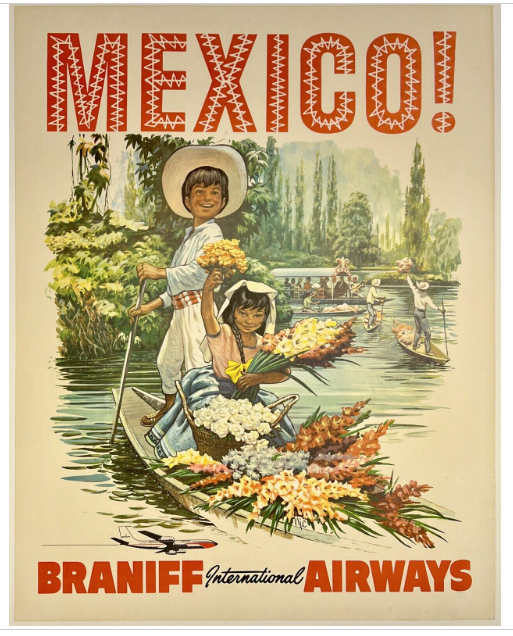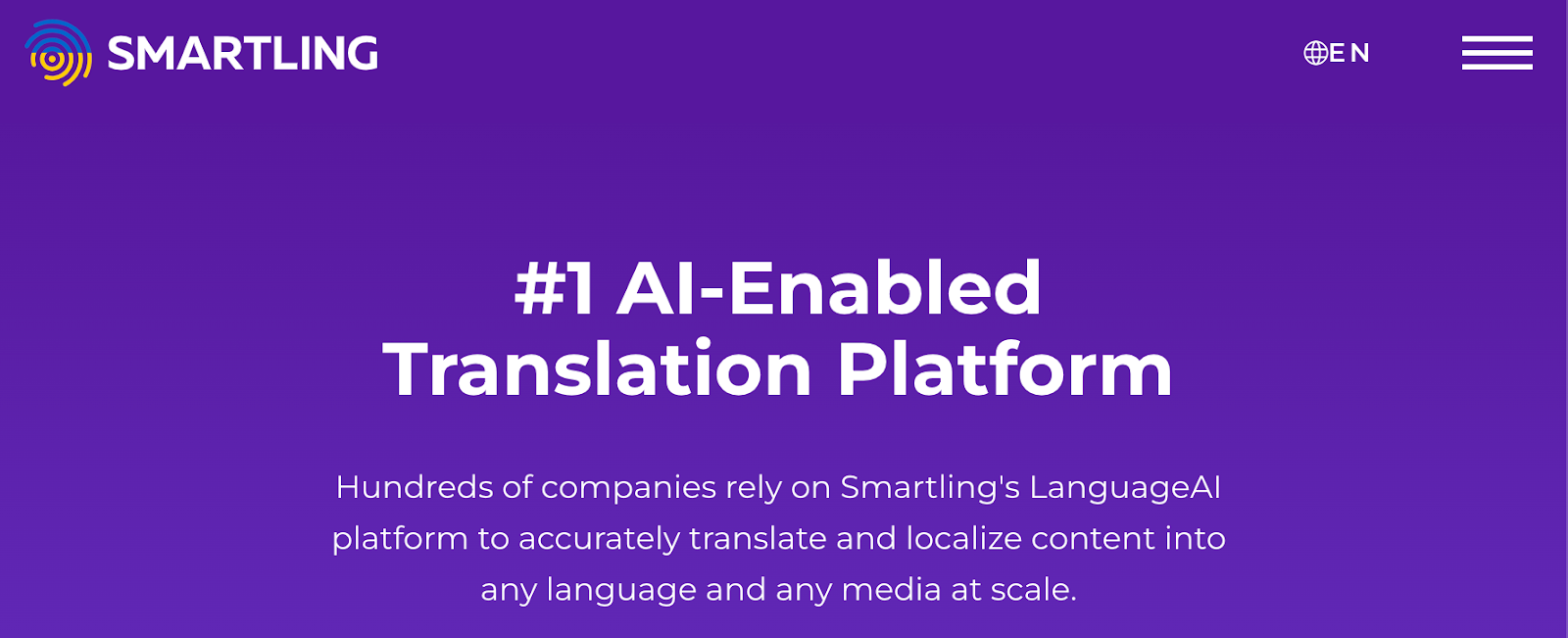Imagine that you’re working your hardest on a campaign. You’ve created an email sequence, social media posts, and a landing page. Like any marketer, you hope for a worthwhile return on investment and tons of engagement and leads. The campaign may be effective in your native language, but the work doesn’t end there.
Now, you have to make your campaign accessible for multilingual markets. But what you don’t realize is that your content needs to connect with the target audience through localization and transcreation. You can’t just translate your message word-for-word and call it done.
One day, your campaign falls apart. Your translations are technically correct, but the words mean something completely different than you’ve intended in other languages. Your audiences laugh and maybe even run away—and just like that, you've set your brand image back.
That's what happened to Braniff International Airlines (now American Airlines) when it translated "fly in leather" literally into Spanish as "vuela en cuero." The luxury tagline’s translation was technically correct but presented an entirely different meaning to its Mexican audience: “Fly naked.”
Imagine being a part of that marketing team. It wouldn't be easy to fix your brand perception after that launch. Yet the issue would have been entirely avoidable had the company used marketing translation services. The missing factors in its campaign were translation accuracy and localization.  These days, collectors sell vintage Braniff posters like this one. (Source)
These days, collectors sell vintage Braniff posters like this one. (Source)
Marketing translation services help you translate on-brand content for local audiences. You can increase your reach and sales with localized translations and thus gain a higher return on investment worldwide.
So how do you more effectively translate your marketing campaigns? The process starts with knowing how translations fit into your marketing strategy.
The importance of marketing translation
Not only do accurate, localized translations help you prevent embarrassing misunderstandings, but they can also improve your campaigns and marketing efforts.
For example, if your brand speaks to an audience on a familiar, local level, you’re more likely to increase conversions.
Think of your own life. If you move far away from home, you'll enjoy the new food and community. But if you walk into a restaurant that cooks the food you grew up with and treats you like family, you’ll connect with the experience on a personal level.
Localization involves translating content with cultural nuances and local perceptions in mind. When your marketing efforts reach target audiences on a familiar level instead of as a foreign company, you can more closely connect with prospects and convert more sales.
Marketing translation vs. marketing localization
When it comes to translating marketing content, there are many details to consider. Two terms that often float around are marketing translation and marketing localization.
Companies leverage marketing translation to convert their source language marketing materials, campaigns, and resources into a target language. For example, a company might translate a brochure or web page from English into Chinese, French, or German.
The downside of general translations is that you risk offending, confusing, or emotionally detaching yourself from a local audience if you don’t keep their cultural complexities in mind.
That’s where localization comes in. Marketing localization focuses on translating and branding content with local nuances, audience perceptions, and cultural considerations in mind to connect with audiences on a local, native level.
Marketers can miss the mark with their campaigns if they don’t localize translations because these translations might discourage audiences from becoming customers. Localized translations offer a more successful approach to local market communication.
Once your marketing team decides to take a localized approach to translations, they can dive into different types of marketing translation services to create more effective marketing campaigns and extend your company’s reach.
Types of marketing translation services
To implement a marketing translation process that works, consider your translation needs and services. Below are some common areas to consider:
Website translation
Customers are more likely to find you online than anywhere else in this digital world. Even if you run a brick-and-mortar company, consumers will first search for you on Google or social media.
That's why it's important to have a personalized website for each target audience. Your website landing pages, home page, blog articles, and other customer-facing marketing content should resonate with each local audience you cater to.
That's not easy when you are targeting dozens of different audiences. An efficient translation management solution and professional language services can be the difference between juggling marketing campaigns in different languages and creating a highly targeted marketing campaign that connects with each audience.
Another translation challenge is providing the correct webpage for each local audience. Smartling’s Global Delivery Network solves this issue by providing each viewer with a localized website version for an authentic, local experience every time.
Online ads and SEO translation
Online advertisement translation isn’t easy. Each word should move the viewer forward. If the translation is effective, viewers will take action. But one strange phrase or incorrect meaning can scare audiences away faster than a spider hanging from the ceiling. Anyone can spot an ad that doesn’t feel quite right.
Great marketing ad translations involve transforming and localizing the original campaign’s content so it moves locals to action.
Marketers need to localize their search engine optimization (SEO) initiatives, too.
Your team should ensure that digital marketing translations—whether they’re meta descriptions or discoverable localized articles—are as effective for multilingual audiences as they are for your English-speaking audience. This process requires localization and transcreation (a combination of translating and creating copy to fit the local audience).
Social media translation
Social media is one of the fastest-moving forms of marketing. There's enormous pressure to keep audiences happy by posting consistently and often, and your social media team has to constantly engage with users.
Engagement might be straightforward in English, but imagine nurturing audiences in Portuguese, Arabic, Hebrew, and many other languages. It's almost impossible to manage high-quality translations in this situation, let alone connect with users on a personal level.
Social media marketing translations provide quick and accurate communication with users and audiences on a scalable basis. For example, a marketing team can post an image to its French Instagram account with a localized description and interact with users in their native language—all inspired by an original post the brand published on its English language account.
Physical material translation
Depending on audiences’ culture, age group, setting, and other factors, your company may need to translate brochures, banners, signs, press releases, and other marketing documents.
As a marketer, you want to ensure that these translations are accurate and localized, especially given the high costs of printing and organizing materials. One simple mistake can be costly, and you could lose sales with poorly translated materials.
Customer support translations
Healthy marketing involves supporting, engaging with, and nurturing worldwide audiences. When a potential customer contacts your marketing or sales team, you’ll want to ensure that you are equipped to help them make the right purchasing decision.
Leads and prospects begin the buyer's journey, and translations can help your team facilitate customers’ decision-making during the buying process.
Other marketing communication translations
Marketing translators aren't limited to the content types in this list. There are many kinds of translations, and they all stem from one critical need: communication.
Effective marketing is all about communicating and connecting with audiences. Whether in a personal conversation, an email, or a video script, you should be able to communicate accurately, effectively, and quickly in each target language.
How do marketing translation services work?
Marketing translations should ideally involve both technology and human expertise. An AI-powered human approach makes translations affordable, fast, and highly accurate.
In this process, AI translates billions of words in seconds. From there, a professional linguist team manages those translations and revises or verifies the content for localization. This approach results in precise translations that communicate on the local audience’s level, eliminates human errors, and saves time with AI technology. It also employs linguists to localize translations for each target market. These translators are native speakers who understand cultural nuances—not just the language or local dialect—deeper and more intimately.
The most effective marketing and localization services leverage these advantages to create professional translations that boost your marketing efforts.
Implementing translation software in your marketing workflows
As you search for the right marketing translation solution, consider costs, accuracy, and the tech stack you need to implement your strategy.
For example, you don't want to juggle multiple translation solutions and services. You already have to manage multiple cultures and target languages, so you don't want to complicate the process even further.
Instead, you should find a solution that provides all the tools and translation services you need. Doing so consolidates the process and makes translations much more efficient and accurate.
The best solution is one that provides end-to-end services and takes a holistic approach to your marketing translation, such as AI-powered human translation. This process leverages machine translation’s speed and affordability and linguists’ nuanced expertise for greater accuracy and speed.
How Smartling makes marketing translation easier
 Smartling is the AI-powered human solution for marketing translation strategies. (Source)
Smartling is the AI-powered human solution for marketing translation strategies. (Source)
With Smartling AI-Powered Human Translation services, you can translate your marketing campaigns and materials to connect with all your target audiences, no matter their language or background. As the premiere all-in-one marketing translation solution, Smartling makes it more possible than ever to streamline marketing content for localized translations, management, and deployment.
Smartling’s Neural Machine Translation Hub chooses the right machine translation engine for each project to achieve the best results, and its translation management system can also optimize your translation workflow and more effectively facilitate team collaboration. These tools, combined with Smartling's professional management and translation services, can provide you with high-quality, localized marketing translations at scale.
Book a meeting with Smartling today to discover how you can supercharge your marketing strategy for higher conversions and greater engagement with a global audience.
%20052925%20-%20AI%20Translation%20101%20(1).png)
.jpg)